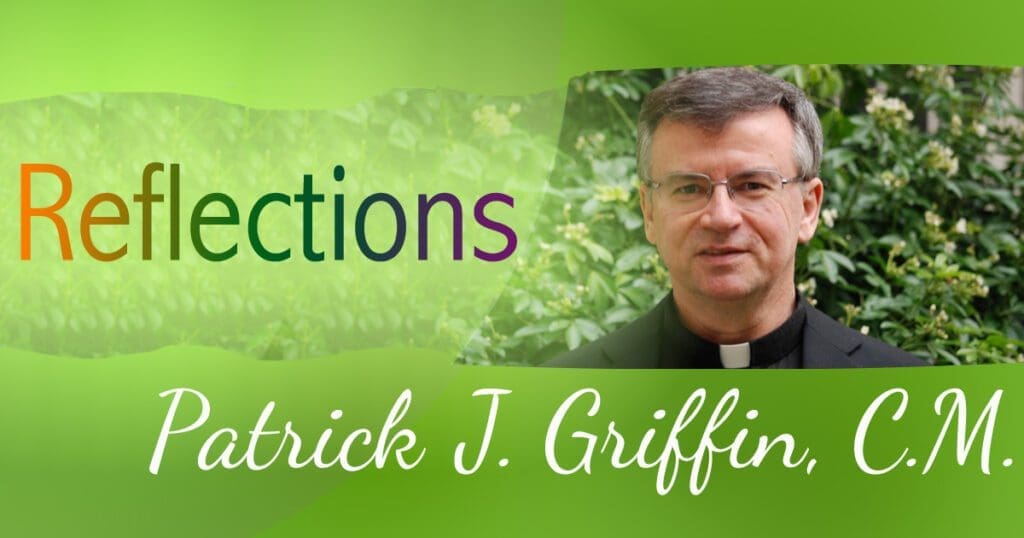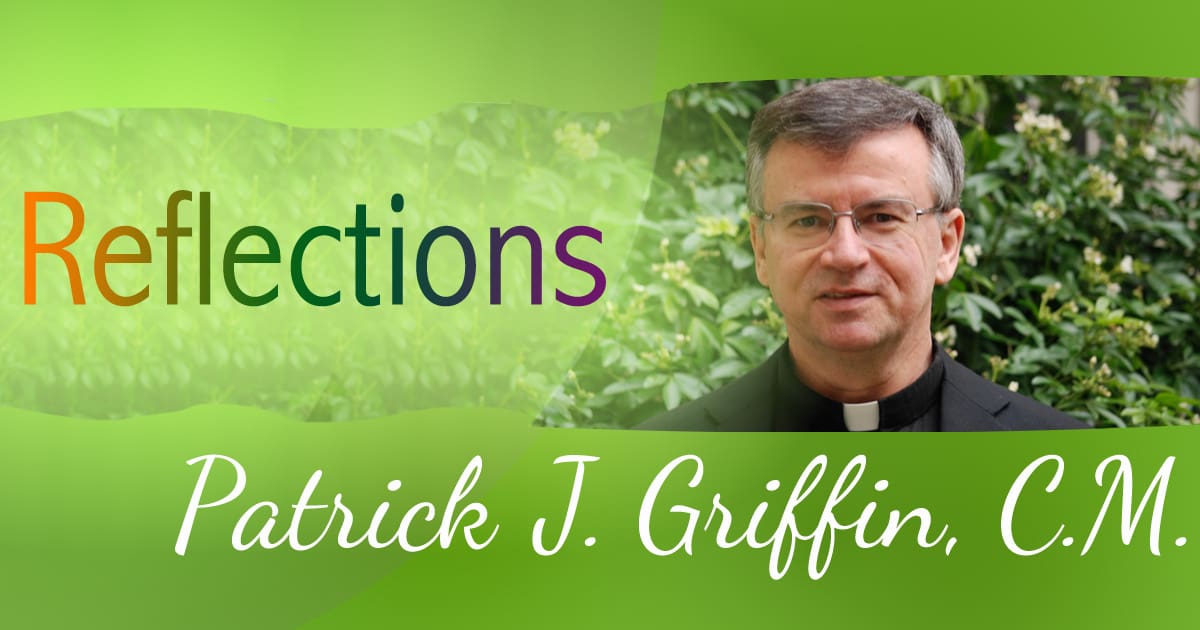A Vincentian View: Come to the Water
From a human point of view, water is inseparable from life. When probes are sent into space to explore different planets or when telescopes scan celestial objects, they seek the telltale signs of water to identify life in any form that we might recognize. Our planet is 71% covered with water; newborn babies are made of 78% water; an adult, 60%. Photosynthesis requires water, and this fluid helps to maintain livable temperatures on our planet. The oceans aid in the generation of oxygen and absorb carbon dioxide. Thinking about the multiple uses and benefits of water should prompt a deep gratitude for this ordinary/extraordinary gift.

Our Bible introduces the primeval waters in the first chapter of Genesis (1:2) and ends with the life-giving water that flows from the throne of God in the last chapter of Revelation (22:1). In between the covers, the place of water in the story of the human community flows consistently. Perhaps some of the most well-known flow from Moses who divides the Red Sea to provide deliverance for his people and then strikes the rock to provide water for a thirsting Exodus community. The Lord had spoken to Moses:
“I will be standing there in front of you on the rock in Horeb. Strike the rock, and the water will flow from it for the people to drink.” (Ex 17:6)
Jesus knew the importance of water for human life. One can imagine his thirst in the desert, or after a long trek. He reveals this need to the woman at the well when he asks for some water (“Give me a drink,”Jn 4:7), and he expresses it literally from the cross (“I thirst,” Jn 19:28). Jesus turns water into wine (Jn 2:1-11); he controls the chaotic storm (Mk 4:35-41); and he walks on water (Mk 6:45-52). Water represents the simple care that we can have for one another that leads to eternal life (Mt 10:42; 25:35). Yes, Jesus even washes feet with water as a sign of service (Jn 13:1-17).
The Lord identifies the water with himself and the gift of the Spirit. At the well, he tells the Samaritan woman (John 4:10–26):
Whoever drinks the water I shall give will never thirst;
the water I shall give will become in him
a spring of water welling up to eternal life.”
He speaks similarly in the Temple during the Feast of Tabernacles:
On the last and greatest day of the feast, Jesus stood up and exclaimed, “Let anyone who thirsts
come to me and drink. Whoever believes in me, as scripture says:
‘Rivers of living water will flow from within him.’” (Jn 7:37-38)
We cannot exaggerate the power and gift of water. We recognize it as the foundational symbol of our Baptism.
During this next academic year, the Vincentian Chair of Social Justice 2023-2024 will draw attention to the theme of water in dealing with ecology and social justice. In our day, one can hardly speak of those elements together without considering Pope Francis’ document Laudato Si’. Regarding water, he says boldly:
Access to safe drinkable water is a basic and universal human right, since it is essential to human survival and, as such, is a condition for the exercise of other human rights. Our world has a grave social debt towards the poor who lack access to drinking water, because they are denied the right to a life consistent with their inalienable dignity. (30)
Our world, our faith, our personal needs prompt us repeatedly to be grateful for this gift of God and to safeguard it for the good of others. We hear the invitation of Jesus springing from Isaiah:
“All you who are thirsty,
come to the water!”
(Isa 55:1)







0 Comments